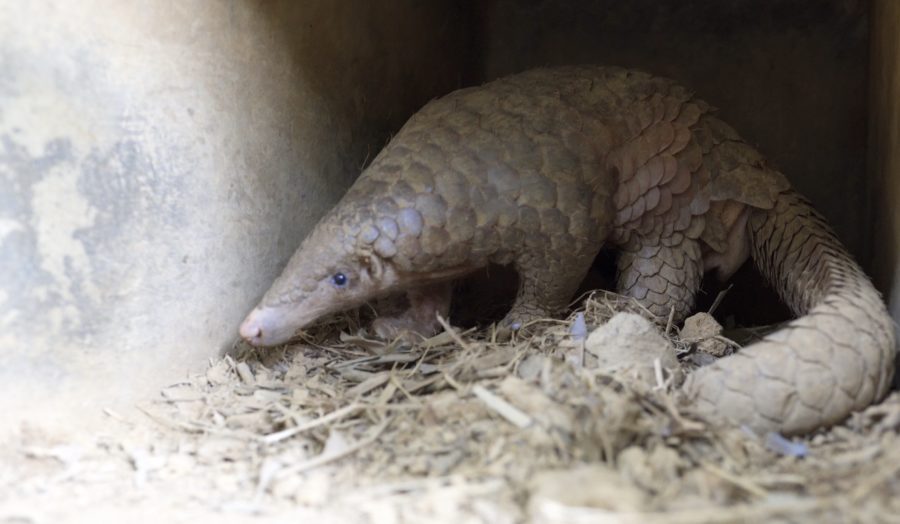The lunar new year is here. And along with everyone else in Vietnam, I’m celebrating the start of the Year of the Dog. But I’m also thinking this week about another more exotic animal. 17 February is World Pangolin day. And pangolins, whether in Vietnam or elsewhere, badly need our help.
Some INGOs estimate that pangolins may be the most trafficked animal on earth. Some seizures have included over 2000 animals at a time. This isn’t about ordinary hunters trying to make ends meet; it’s about large-scale organised criminality threatening the survival of one of the world’s most unusual mammals.
Pangolins are the only known mammals to have a coat of scales. But while this provides an excellent defence against natural predators, it also makes the pangolin a target for mankind. Some people believe, wrongly and with no evidence, that pangolin scales can cure various diseases, or even help women to breast feed. Others see the flesh of the pangolin as a luxury bush meat. Meanwhile, deforestation and the relentless spread of towns and farm land are reducing pangolins’ natural habitat.
All this is having a predictable and terrible effect on pangolin numbers. Whereas pangolins were once common across Africa and Asia, all eight variants of the species are now listed as vulnerable, endangered or critically endangered.
When we talk about the illegal wildlife trade, we often think of Vietnam as a destination or transit country for products sourced from endangered species – African elephant ivory or rhino horn. But when it comes to pangolins, one of the challenges for Vietnam is to protect its own precious biodiversity. Vietnam is home to both Sunda and Chinese pangolins, both of which are considered critically endangered.
It is not too late to make a difference. Things have already changed hugely since I started this job in 2014 – let alone since I first worked in Vietnam back in the 1990s. At that time, the trade in endangered species was “hiding in plain sight”: if you knew where to look, it was depressingly easy to find restaurants offering a wide range of supposedly illegal bush meats, pangolins amongst them, or traditional medicine shops using wildlife products. The very limited amount of NGO activity was foreign-led and -funded. The native rhino population was well on the way to being hunted to extinction.
Now, the illegal trade no longer takes place in the open. Seizures by the law enforcement authorities are up. And revisions to the Penal Code cases will make it easier to mount successful prosecutions against traffickers who before might have got away with an “administrative” sanction (ie, a small fine).
Most encouragingly, Vietnamese voices are increasingly leading the way in conservation and public education efforts. When it comes to pangolins, a home-grown NGO, Save Vietnam’s Wildlife, is setting a truly inspirational example. In Cuc Phuong National Park, Nguyen Van Thai and his team have built a rescue centre that rehabilitates pangolins confiscated by the authorities from traffickers before returning them to the wild, twinned with an education centre which teaches local children about the value of the biodiversity in their communities. Meanwhile, SVW’s research and conservation programmes are shedding important new light on pangolin populations and behaviours.
I’m proud that so many British organisations, experts and volunteers are engaged in the fight to protect endangered species and to combat the illegal wildlife trade in Vietnam. I’m also proud of the work that we have been doing at the British Embassy to build bridges between the Vietnamese authorities, the international donor community, and international and domestic NGOs alike, and identify common ground for joint action. But it seems to me that growing activism by domestic NGOs like Save Vietnam’s Wildlife is what will make the biggest difference in the long term. 18 February is a day to acknowledge the scale and urgency of the threat to pangolins (and many other species), but it should also be a day for remembering that progress is possible.

